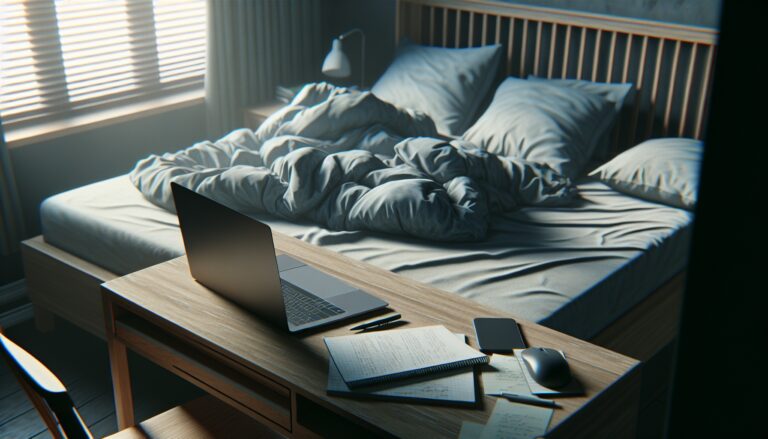Argomenti trattati
Understanding the allure of working from bed
In the wake of the pandemic, the landscape of work has dramatically shifted, with many individuals now embracing the flexibility of remote and hybrid work environments. While the comfort of working from bed may seem appealing, it is essential to understand the potential repercussions of this habit on both physical and mental health. The cozy atmosphere can lead to a false sense of productivity, but it may also blur the lines between work and rest, ultimately impacting overall well-being.
The psychological effects of mixing work and rest
According to Nadia Murdock, a mindset and movement coach, the brain can become confused when the bed is associated with work rather than relaxation. This confusion can lead to poor sleep quality, increased anxiety, and diminished focus. When the brain starts to link the bed with work tasks, it may struggle to recognize it as a space for rest, leading to a cycle of restlessness and fatigue. The mental toll of this habit can be significant, as it disrupts the natural boundaries between work and personal life.
Physical consequences of working from bed
Beyond the psychological implications, working from bed can also have detrimental effects on physical health. The posture adopted while working in bed can lead to chronic issues such as back pain, poor circulation, and eye strain. Murdock emphasizes that while occasional work from bed is acceptable, making it a regular practice can result in long-term health problems. To mitigate these risks, it is crucial to establish a dedicated workspace that promotes good posture and minimizes distractions.
Creating a healthier work environment
To combat the temptation of working from bed, Murdock suggests creating a designated workspace within your home. This could be a small desk or a corner of a room that is specifically set up for work. Personalizing this space with decor that inspires productivity can help reinforce the idea that this area is for work, while the bed remains a sanctuary for rest. Additionally, physically distancing the workspace from the bed can further help in separating work and relaxation times.
Shifting your mindset for better productivity
Transforming your work habits requires not only physical changes but also a shift in mindset. Murdock advises conditioning your mind to view the bed solely as a place for sleep and relaxation. Removing work-related items from the bedroom can create a more conducive environment for rest. Keeping track of your work habits, such as logging hours spent working from bed versus a designated workspace, can also foster accountability and encourage positive changes. Celebrating small victories along the way can help maintain motivation and reinforce healthier work practices.

